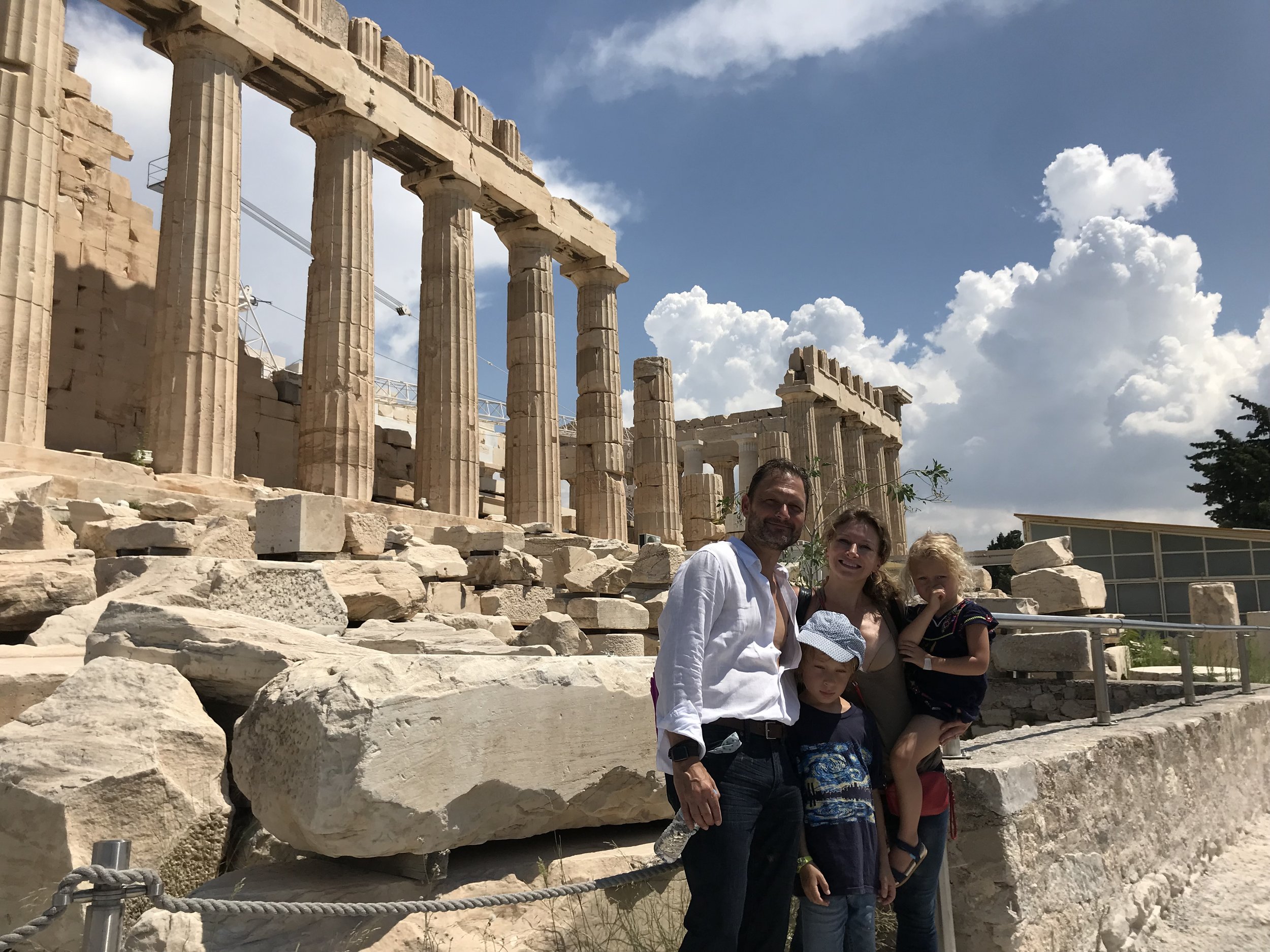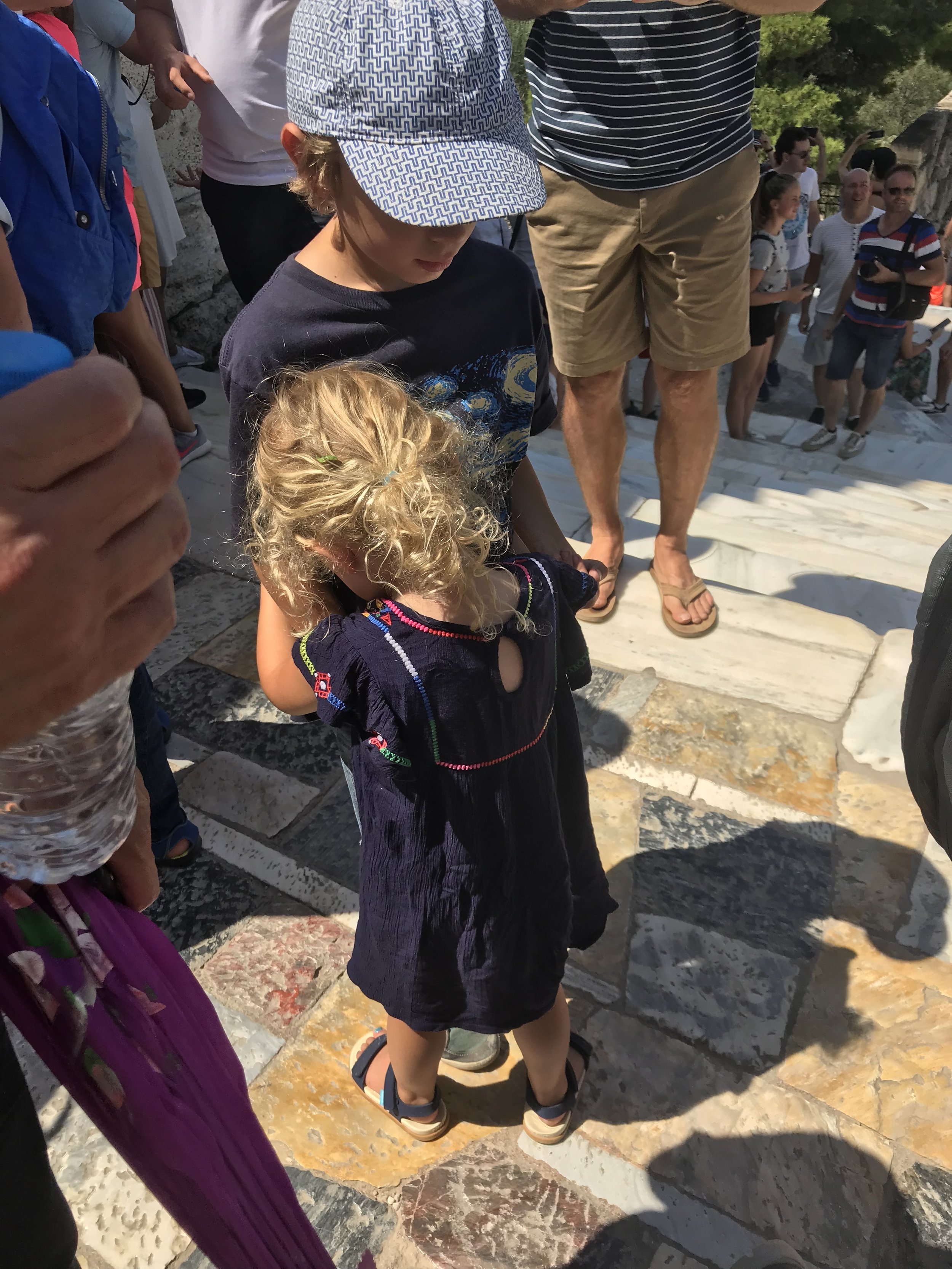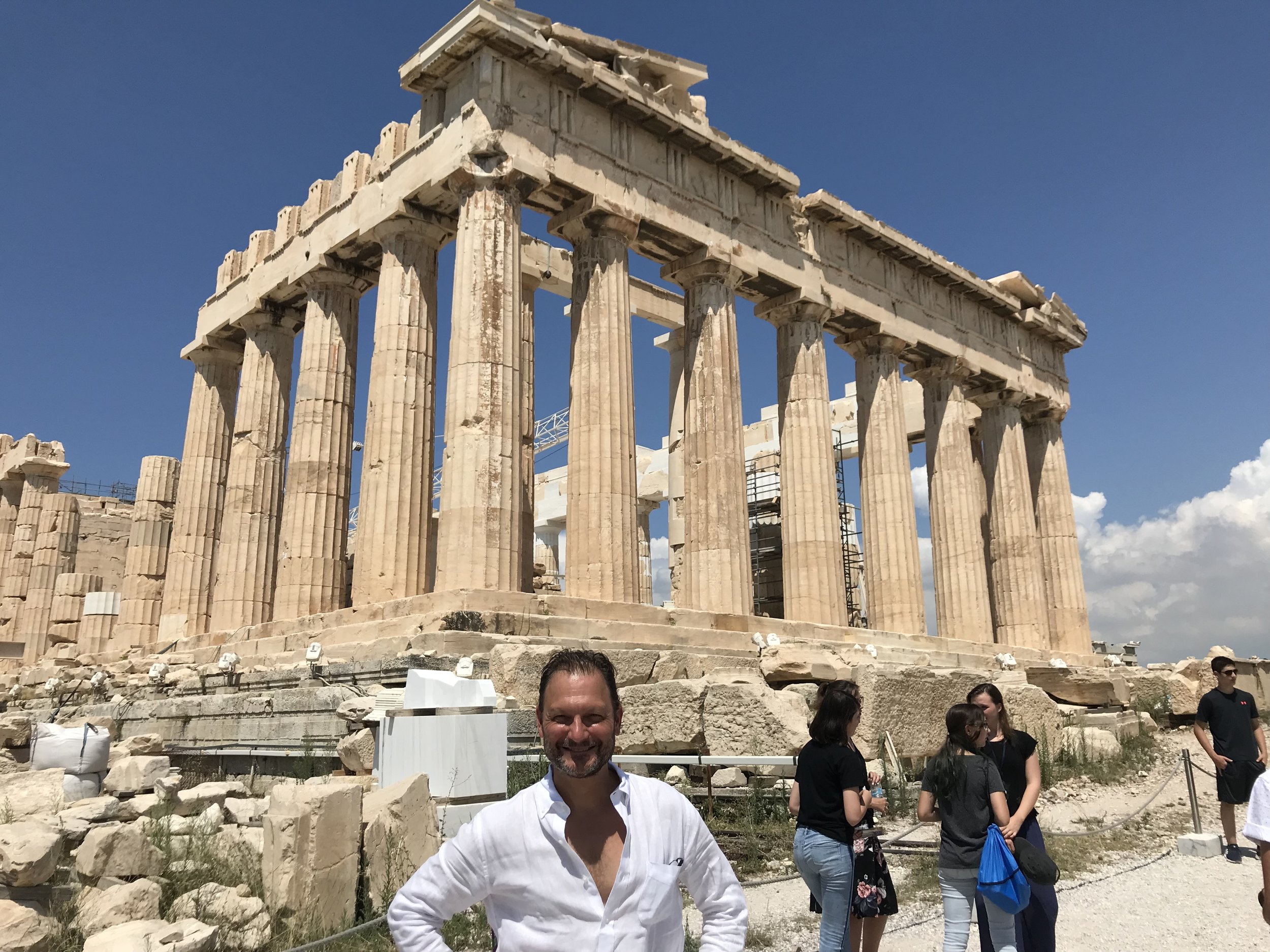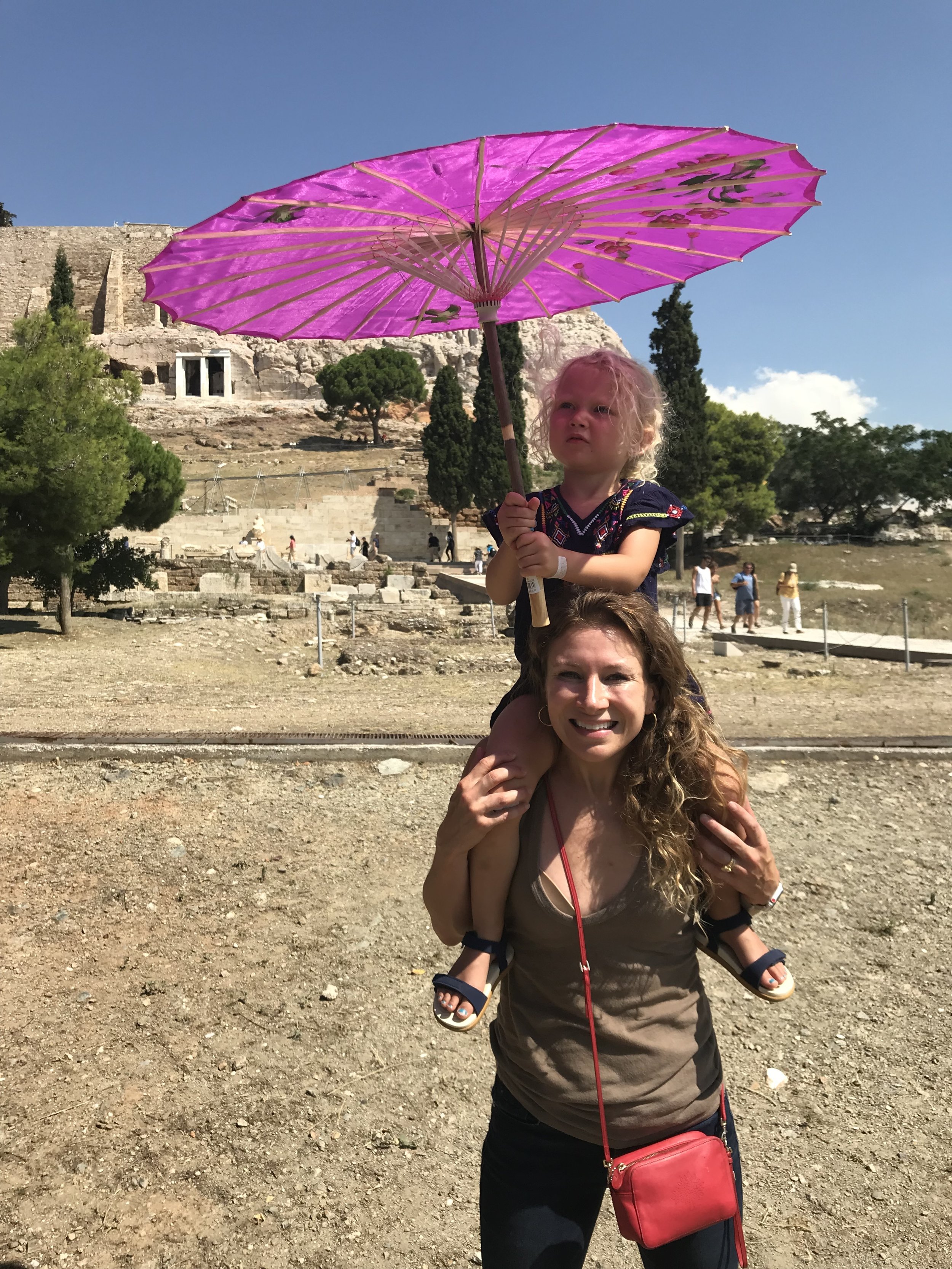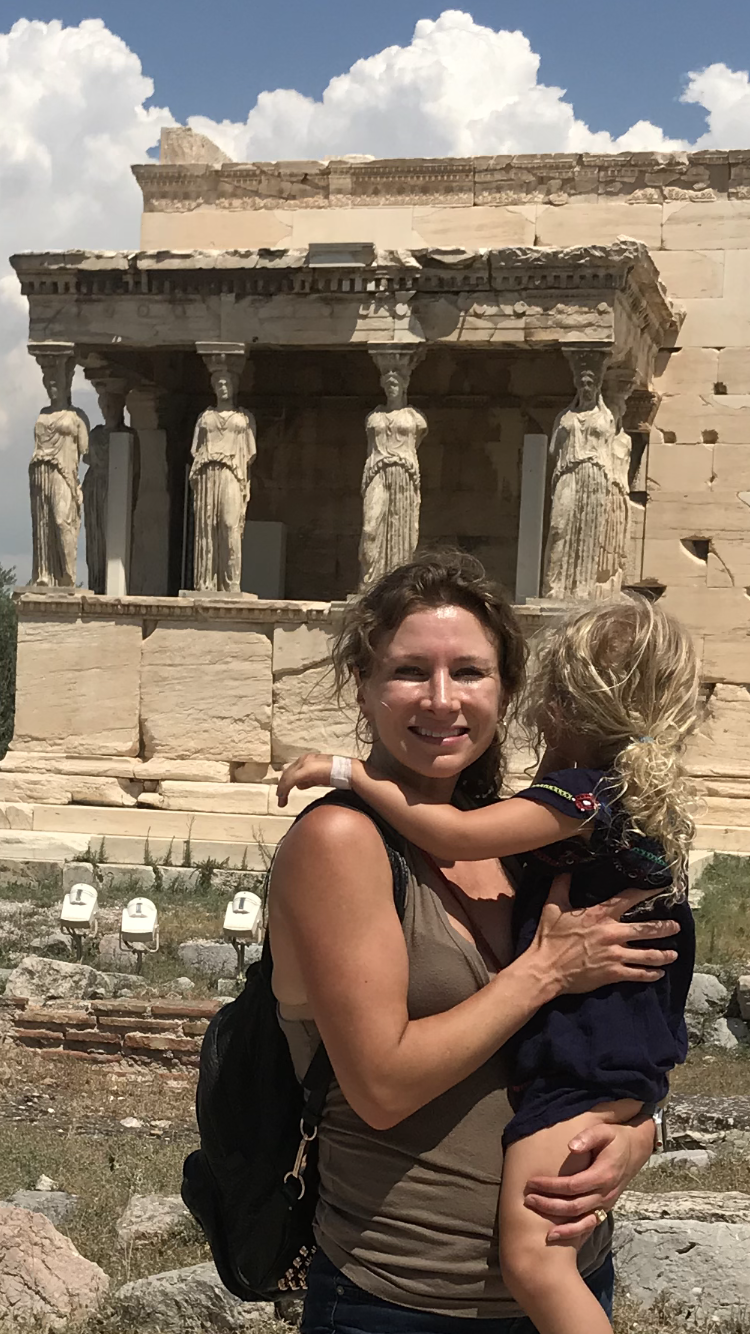FULL CIRCLE
When Bret and I said good-bye at the Acropolis in 1998, I didn't cry, I world-ending sobbed, as only an eighteen-year-old can. This was before cell phones were commonplace (I wouldn't have one for many years) and while he'd given me his business card (LOL), we were definitely leaving it as an au revoir—a very open-ended "see you again" with zero expectations (apart from the plan I'd hatched to intern in New York the following winter, which I did). I was crying so hard that when I went to buy a street painting and was short a few drachmas, the painter gave it to me.
The painting from 1998 that hangs on our wall now.
I spent the rest of the summer dissolving into tears whenever Natalie Imbruglia's Torn came on the radio, a hit that we'd danced to in Delphi. While my Bret-philia might have seemed melodramatic, I will always remember and respect the romantic extremes of the young.
It was a few years prior, in high school, that I fell in love with Greek Theatre owing to the inspired instruction of my lit professor, Tim Blackburn. In a characteristically gutsy move, Mr. Blackburn had adapted a 30-minute Medea for the annual one-act play competition. I auditioned with the sorceress's opening monologue that begins:
"Women of Corinth, I have come outside to you
Lest you should be indignant with me; for I know
That many people are overproud, some when alone,
And others when in company. And those who live
Quietly, as I do, get a bad reputation."
(Euripides, trans. Rex Warner)
I was transfixed by the grandeur of the language and universality of a thought penned so long ago. The Greeks taught me that immortality lies in the human emotions we carry from one life to the next. Through Polonius Shakespeare told us, "To thine own self be true." Melville was more specific, "To your younger self be true." Our final days in Athens brought me back to my young passion for the culture that ranked self-knowledge highest amongst virtues. I'll never stop revisiting the teachings of Ancient Greece.
Overlooking the Ancient Theatre of Dionysos.
The children took the spotlight on this Meetingversary trip. There is much we would have agreed to that wasn't "kid friendly": the thousand steps to the Venetian fortress in Napflion, the many lofty sites of Santorini, a more leisurely tour of the scorching Acropolis that sapped the little ones of all good humor and strength. When traveling with young children, museums and meals are had on speed, conversations unfold in fragments, captions photographed for later reading. I didn't feel particularly kid friendly at times, yet the greatest success of this adventure was on the family level. We've never done two weeks as a foursome and we're closer for it. The kids provided perspective, pride and huge laughs; Cordelia's "Holy Ship!" on seeing our massive ferry at Piraeus will live in our family quote book, and William's coining himself the Ancient Stucker, pretending to get his head entombed between rocks in Santorini, is our new favorite Williamism.
The Ancient Stucker Survives.
After evacuating our listless children from the Acropolis, we hastened to lunch at the wonderful Herodion Hotel. I had planned to buy another symbolic street painting but we took a wrong turn and missed the row of artists that flank the main gates. Our taxi to the airport now thirty minutes away, I stepped away from lunch and dashed back alone in search of something that might nicely close this twenty-year circle.
Our new "common" yet priceless oil.
I indulged in a slower walk back. I had no camera and gave the Acropolis a few long last looks. I tried to remember more about that lovesick farewell twenty summers ago. I half-wished I could comfort my younger self, yet I'd never deny her the thrilling twists and turns of her own little odyssey that led to this day. Instead of leaving Bret possibly forever, I was making my way back to him and our kids a mere few steps away. Instead of weeping hysterically, I let a few tears drop and laughed at myself—at the tragicomedy of life, at twenty years of drama*. I'm definitely getting what I asked for.
1. Cordelia comforting William after he got in trouble...because of her. 2. Is it hot out here or is it me? 3. Cordelia's sunbrella. 4. Cass, Cordelia and the Caryatdids that hold up the "Porch of the Maidens" at the Erechtheion.
*As our thoughtful Acropolis tour guide, Athená, reminded me, the Greek word "drama" simply means "action" or "deed." We have 60,000 Greek words in English!

